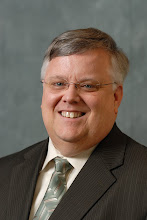You Can Bet on Us!
 CNN Money magazine has a new story out called "The $25 Trillion Land Grab." In the article, the authors analyze Professor Robert Lang's ten US "megapolitan" regions. They predict that each of these regions are poised for a development boom that will dwarf America's post-WWII buildout.
CNN Money magazine has a new story out called "The $25 Trillion Land Grab." In the article, the authors analyze Professor Robert Lang's ten US "megapolitan" regions. They predict that each of these regions are poised for a development boom that will dwarf America's post-WWII buildout.Our "megapolitan" region is called the "Great Lakes Horseshoe." And, right there under "Real Estate Bonanza," the little village of Elburn is identified as the "best residential real estate bet" in the entire region.
The caption also states that Elburn, Ill. is "a tiny Chicago suburb set to boom after a commuter rail extension is completed by year's end."
My initial reaction to the story is that this isn't the kind of publicity Elburn really wants. We are the town that values better over bigger, quality over quantity, and sensible growth over sprawl. We are one of the only towns that talk openly about greenbelts, growth boundaries, resident life cycles, making interconnections and seeking equal access to social resources.
We don't want to be a "boom" town. In fact, we would prefer to remain a "hidden jewel." That is, a community people find by accident, then stay for the quintessential "Americana" quality of life.
But, upon further reflection my reaction to this article is a little deeper than that. I ask, if Elburn is truly the "best residential real estate bet" in the entire "Great Lakes Horseshoe," can the rest of western Kane County be far behind?
And, if that is the truly the case, then what should we do to take advantage of our regionally recognized status? There are four things that jump into my mind immediately.
First, we must do a better job working together to foster a regional consensus of our shared planning goals. Second, we must do a better job capturing the "real costs of growth" in our annexation and development agreements.
Third, we must resist the temptation to offer retail tax rebates to commercial entities that would build here eventually without them. And, finally, we must stop "shooting ourselves in the foot," by prematurely annexing farmland that isn't even under consideration for development. We naively think this is going to protect us from our neighbors, but all we are really doing is making the growth go faster.
If we are development's "best bet" in the region, then we should remember to "play that card." We should stand strong as a favored region, and not let contentious "growth issues" divide and conquer us. And, we should make the development process itself pay dearly for priviledge of building where their "bet" is a sure thing.


<< Home